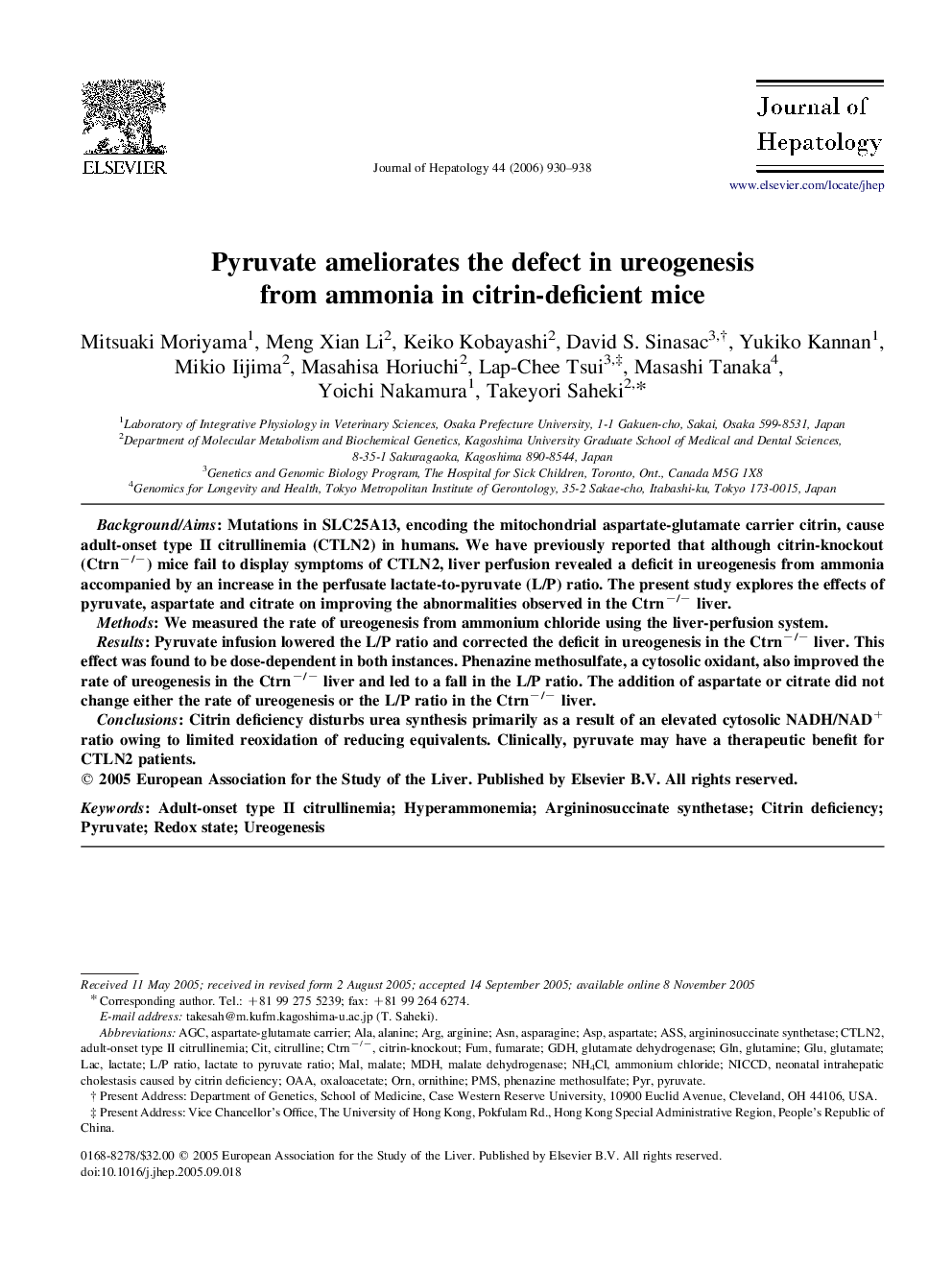| کد مقاله | کد نشریه | سال انتشار | مقاله انگلیسی | نسخه تمام متن |
|---|---|---|---|---|
| 3314945 | 1211228 | 2006 | 9 صفحه PDF | دانلود رایگان |

Background/AimsMutations in SLC25A13, encoding the mitochondrial aspartate-glutamate carrier citrin, cause adult-onset type II citrullinemia (CTLN2) in humans. We have previously reported that although citrin-knockout (Ctrn−/−) mice fail to display symptoms of CTLN2, liver perfusion revealed a deficit in ureogenesis from ammonia accompanied by an increase in the perfusate lactate-to-pyruvate (L/P) ratio. The present study explores the effects of pyruvate, aspartate and citrate on improving the abnormalities observed in the Ctrn−/− liver.MethodsWe measured the rate of ureogenesis from ammonium chloride using the liver-perfusion system.ResultsPyruvate infusion lowered the L/P ratio and corrected the deficit in ureogenesis in the Ctrn−/− liver. This effect was found to be dose-dependent in both instances. Phenazine methosulfate, a cytosolic oxidant, also improved the rate of ureogenesis in the Ctrn−/− liver and led to a fall in the L/P ratio. The addition of aspartate or citrate did not change either the rate of ureogenesis or the L/P ratio in the Ctrn−/− liver.ConclusionsCitrin deficiency disturbs urea synthesis primarily as a result of an elevated cytosolic NADH/NAD+ ratio owing to limited reoxidation of reducing equivalents. Clinically, pyruvate may have a therapeutic benefit for CTLN2 patients.
Journal: Journal of Hepatology - Volume 44, Issue 5, May 2006, Pages 930–938